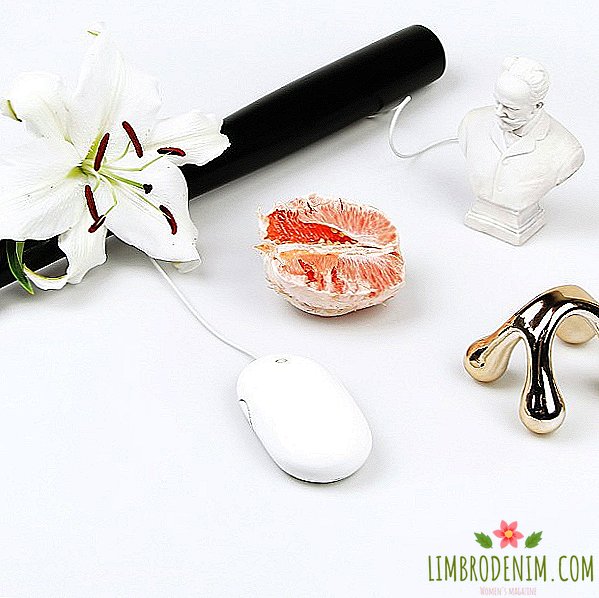Irritable Bowel Syndrome: What it is and how to defeat it
Although irritable bowel syndrome, causing pain and rumbling in the abdomen, is studied for decades, its causes are still unknown. We found out how to live with IBS and whether it can be defeated once and for all from specialists: MD, gastroenterologist, director of the Rassvet clinical evidence clinic, Alexey Paramonov, the author of the book “The Gut with Comfort” and the psychiatrist of the HEI. Psychiatric Hospital No. 14 "Sofia Shemyakin.

What it is
Irritable Bowel Syndrome (IBS) is a condition in which a person feels discomfort in the stomach for at least three months a year, but surveys show that he has no health problems. Each of the symptoms of IBS - pain, bloating, diarrhea or constipation - can manifest itself or alternate with others. It is customary to isolate irritable bowel syndrome with a predominance of diarrhea or with a predominance of constipation, although the opposite symptoms can be replaced by each other in both cases. To assume that IBS is a separate disease, always proceeding typically, is wrong: it is rather a whole group of similar disorders.
How is he diagnosed
According to the doctor Alexei Paramonov, IBS and related disorders are found several times more often than all other intestinal diseases combined. This fact served as a reason for reconsidering the diagnostic approach that had dominated medicine before: it was thought that irritable bowel syndrome was an "exclusion disease", that is, the diagnosis was made following the residual principle when all other options were excluded. To exclude diseases such as bowel cancer, Crohn's disease, ulcerative colitis, patients underwent a colonoscopy. But over time, an understanding emerged that the probability of finding a malignant tumor in a twenty-year-old patient suffering from abdominal pain within five years is close to zero.
As a result, the approach to diagnosis has become more individual. For example, a colonoscopy of a young patient will be prescribed only if he has alarming symptoms: blood in the stools, a sharp decrease in weight, fever, changes in blood test parameters. Good and non-invasive methods have appeared, such as an immunochemical test for hidden blood in the feces and analysis of feces for calprotectin (a marker of intestinal inflammation). If such examinations show abnormalities, then a colonoscopy will be necessary at any age.
Is it possible to make diagnostics even easier
Theoretically, irritable bowel syndrome can be diagnosed by conducting only one blood test for a couple of additional parameters. Under the leadership of Dr. Mark Pimentel, a group of gastroenterologists and laboratory diagnostic specialists developed a new method. It is based on the idea that IBS is a post-infectious autoimmune disease. According to this hypothesis, an organism that has undergone a bacterial intestinal infection continues to experience the negative effects of the bacterial cytotal loosening toxin (CLTD). A large study was conducted involving thousands of patients and healthy people, and they could really be distinguished from each other by detecting antibodies to CLTD and to the intestinal protein vinculin.
This immunological test passed all necessary checks and was registered by the FDA for medical use in the United States. It would seem that the origin of irritable bowel syndrome is established, it can be diagnosed in one fell swoop, and anti-inflammatory drugs should be treated. But the test has several serious flaws. For example, it is effective only in IBS with a predominance of diarrhea, but not with a predominance of constipation, and also works better in women. Therefore, the test is recommended for post-infectious IBS with a predominance of diarrhea, that is, only a form of the syndrome.

What kind of treatment is effective?
Alexey Paramonov notes that although some progress has been made recently in the diagnosis of irritable bowel syndrome, there have been no major changes in treatment for a very long time. Long-acting antispasmodics are still used, symptomatic drugs - laxatives for constipation, "Loperamide" for diarrhea - but this approach is ineffective and helps only with short exacerbations. A new drug, Linaclotide, is now registered in the US - it is a laxative, effective in treating IBS with constipation, which helps eliminate pain and is not addictive. In Russia, this medication is not yet available and older versions are used. Good results are given by the combination of "gastroenterological" means with drugs that affect the psyche. Of course, it is impossible to put an equal sign between IBS and mental deviations, but the connection of the syndrome with depression, anxiety, obsessive states has been scientifically proven. However, some drugs used in psychiatry, have been effective in IBS, regardless of the presence or absence of psychological problems in the patient.
According to Paramonov, there is a good evidence base for tricyclic antidepressants and drugs of the SIOZSiN group - serotonin and norepinephrine reuptake inhibitors (the latter are usually better tolerated). Nevertheless, doctors still do not have an answer to the question of how to treat any form of IBS so as to get good results. Psychiatrist Sofya Shemyakina notes that irritable bowel syndrome can be a psychosomatic disorder. At the same time, there are two categories of patients: some report about the occurrence of the disease or its progression after stress and react positively to psychotherapy and treatment with antidepressants, others do not see any connection between the ailment and their own experiences, and the effect of psychotropic drugs and psychocorrection is lower.
It is important that the intestinal disturbances themselves only increase the stress - a person is forced more often to move away from communicating with other people, change diet or lifestyle. At the same time, stress hormones provoke a contraction of the intestinal walls, intensifying pain, which is perceived by the brain as a deterioration of the condition - and again stress hormones are released. This is a "vicious circle" from which it is not easy to get out, so psychotherapeutic and psychopharmacological support is necessary for patients with IBS. According to Shemyakina, tricyclic antidepressants and antidepressants of the SSRI group do not only improve mood and reduce anxiety, but also ease pain and reduce or increase appetite. From psychotherapeutic methods, the best effect is given by cognitive-behavioral and psychoanalysis-based psychodynamic therapy. Autogenic training in combination with progressive muscle relaxation and taking antidepressants can also be beneficial.
What treatment does not help
There have been attempts to use the anti-inflammatory drug Mesalazine, a classic, for many bowel diseases, with IBS, but they were not crowned with success. For most patients, this remedy does not help, and those who managed to get better probably did not initially suffer from IBS, but from microscopic colitis, an inflammatory disease detected only during biopsy. The lack of universal means in the fight against IBS provokes attempts to solve the problem by unscientific methods. As an example, Aleksei Paramonov cites the FUDMAP diet that is widespread throughout the world (its essence is to exclude easily digestible carbohydrates from the diet). It is effective for symptoms of excess bacterial growth in the small intestine (SIBO), similar in symptoms with IBS, but in the case of IBS, only a minor symptomatic effect can occur, while significantly reducing the quality of life. The doctor adds that the GAPS diet is no less popular, but, unlike FUDMAP, it is absolutely useless with IBS. The situation is similar with probiotics. Such drugs can speed recovery in the case of diarrhea after antibiotic treatment or infectious diarrhea, but with irritable bowel syndrome, their effectiveness remains unconfirmed.
According to doctors, a real breakthrough will be the movement towards personalized medicine, when it becomes possible to predict the success of therapy based on the patient’s genotype, and it will be possible to treat irritable bowel syndrome individually. All this in the future, but for now, an antispasmodic with an antidepressant with the support of psychotherapy and symptom control is a real and affordable way to improve well-being for most patients with IBS.
Photo:benschonewille - stock.adobe.com, Fotofermer - stock.adobe.com, F16-ISO100 - stock.adobe.com





